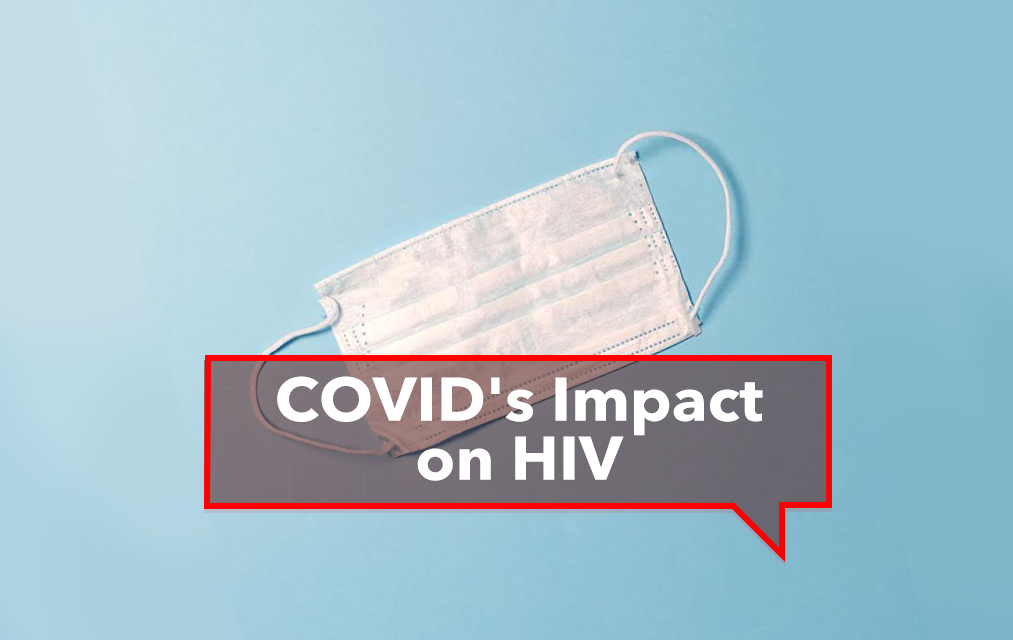COVID’s Impact on HIV

COVID is changing humanity in ways that would have been hard to imagine before the onset of the pandemic. Almost every aspect of life has shifted. Shops are now scanning clients’ temperatures, schools are social distancing, and a large swath of the workforce has transitioned to working from home. However, there’s no arguing that the health sector has been the most impacted.
Doctors, nurses, and first responders worldwide are facing an enemy they do not understand. While the times certainly call for efforts to be distributed to fight the threat, this has also led to patients suffering from other conditions to fall to the wayside. This has been the case for HIV patients who have seen testing and treatment options steady declining over the past few months.
Misinformation in The Age of COVID
There are some parallels in the perceptions of COVID and HIV. During the first years of the AIDS/HIV pandemic, very little was known about the disease. This led to a lot of misinformation and harmful stereotypes that have long been shelved. COVID has also seen the rise and fall of conspiracy theories and miracle cures. The reality is that it’s tough to have definitive facts about new viruses, which has led many people with HIV wondering what the effects of COVID could have on them.
HIV Testing and Care Falling to the Wayside
If COVID has demonstrated anything to the medical community, it is the importance of testing. With lockdowns and stronger sanitization, testing has been one of the key weapons to combat the spread of the virus. Countries lauded for their contention efforts have one thing in common: testing and contact tracing has been practiced on vast scales. Ironically, it’s testing that has also demonstrated the shortcomings of many health systems worldwide, with even some G7 countries struggling to process the enormous amount of samples.
This has left HIV testing as an afterthought, with some hospitals and care centers exclusively dedicating themselves to process COVID samples. There were approximately 1.7 million new HIV cases in 2018. If testing and contact tracing continue to be limited, this year’s numbers could be even higher. Hospitals and medical centers that are still testing for HIV have also experienced a decline in the number of people who want to get tested for STIs because they are afraid to contact people infected with COVID.
Along with that troublesome fact, many HIV patients require frequent testing to measure their treatments’ effectiveness. These treatments can give patients an average life expectancy, but if the access to drugs is limited, this puts their lives in grave danger.
Subsequent Efforts

This doesn’t mean that efforts are not being made worldwide to supply HIV patients with the treatments and testing they need. The World Health Organization has recognized the urgency of the situation and created guidance for countries experiencing shortages of medicines and testing kits. This includes the recommendation to prescribe treatments for more extended periods so that patients can stock up. Whether this works or not still depends on the recovery of the supply chain.
Other organizations like UNAIDS have been coordinating efforts with governments and communities to deliver HIV treatments to patients stuck in parts of the world with strict travel restrictions. In the United States, The Center for Disease Control is now recommending test manufacturers to mail testing kits to people’s homes. However, many patients are experiencing difficulties in the ordering process. Some clinics have resorted to stopping walk-in testing and require an appointment.
The Takeaway
With many health care systems around the world bracing for a second COVID wave, a lot is yet to be seen about the effects it has for HIV patients. While governments are working together with manufacturers to keep the supply chain of treatments, the priorities could shift at any time. If COVID has brought along “new normal,” it’s imperative that this also applies to HIV patients. If anything was learned from the AIDS/HIV pandemic, it’s that access to testing and contact tracing should never be in short supply.

